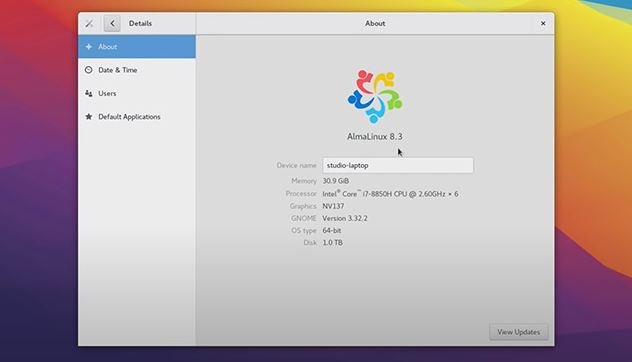Linux developers announced that since this week AlmaLinux, the enterprise-level open source distribution that emerged as a replacement for CentOS will be publicly available. This new version will have complete stability and will be ready for the most demanding workloads.
The announcement also revealed the upcoming integration of a non-profit partnership for the management of the AlmaLinux project, which will feature an initial stimulus of $1 million USD to ensure essential operations.

AlmaLinux’s name seeks to evoke the role of the community in creating these projects, as well as allegory with the concept of an immortal soul: “There is a general feeling in the community that things have changed, although in essence it remains the same creation of the community in the same way that souls reincarnate” Aboutboul concludes.
Jack Aboutboul, who has more than 20 years of experience in the open source software community, was named AlmaLinux’s lead administrator: “In an effort to meet CentOS’ demand as a stable version, we developed AlmaLinux in close collaboration with the Linux community, resulting in a ready-to-use alternative in the most demanding environments,” Aboutboul said.
Aboutboul will be backed by a board of directors made up of important names in the Linux community, including renowned open source advocate Simon Phipps, Igor Seletskiy and Eugene Zamriy.
Beta testing ended recently, giving developers the opportunity to fix all possible drawbacks in the final release, including debugging processes, adding packages, and preparing for production workloads. This final release also includes support for Amazon Web Services (AWS), VMware, Errata, and SecureBoot, as well as a script for a rapid migration from CentOS to AlmaLinux.
“While this change took millions of CentOS users by surprise, AlmaLinux will provide an excellent level of continuity and a new opportunity to be part of one of the most important communities in software development; this is a great CloudLinux initiative,” says Simon Phipps.
To learn more about information security risks, malware variants, vulnerabilities and information technologies, feel free to access the International Institute of Cyber Security (IICS) websites.
He is a cyber security and malware researcher. He studied Computer Science and started working as a cyber security analyst in 2006. He is actively working as an cyber security investigator. He also worked for different security companies. His everyday job includes researching about new cyber security incidents. Also he has deep level of knowledge in enterprise security implementation.
